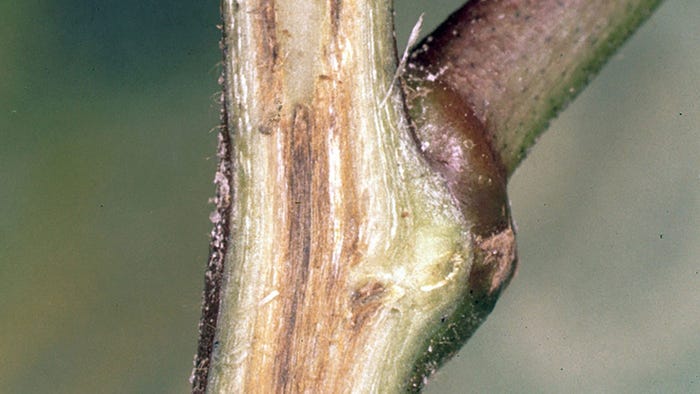November 16, 2023

Cotton farmers worldwide have long witnessed Fusarium wilt strip leaves from their crops, leaving plants with bare stems withering away in the fields.
Scientists from Clemson University and Australia are collaborating to create Fusarium-resistant germplasm for use in United States and Australian cotton breeding programs.
Christopher Saski, a geneticist in Clemson’s Plant and Environmental Sciences Department, is working with Warwick Stiller, a plant breeder in Australia’s Commonwealth Scientific and Industrial Research Organization (CSIRO), to develop germplasm to combat the FOV4 (Fusarium Race 4) strain in Upland cotton.
“Fusarium wilt is a primary disease affecting production in many growing areas in the United States and Australia, both of which rely on exports to sustain their production systems,” Saski said.
A soilborne pathogen causes the disease and can live in the soil for many years. Chemical controls and cultural practices are ineffective, making genetic-resistant plants a viable solution for controlling FOV4.
“We want to gain a deeper understanding of plant defense mechanisms and identify potential targets for genetic manipulation so that we can release varieties with durable genetic resistance much faster,” Saski said.

Symptoms of FOV4 on Upland cotton include dark and continuous vascular staining on the upper tap roots and lower stems of plants. Image provided by Clemson University.
New breeding tools will help determine if recently discovered genes that provide resistance to FOV4 in United States cotton can also provide resistance in Australian cotton.
“We will use cutting-edge research and collaboration to empower breeders with the tools and knowledge they need to optimize cotton production, thus helping secure the future of this vital crop,” Saski said.
Stiller said cross-disciplinary collaboration is essential to opening discussion and sharing methodologies, technology and experience across research groups.
“Although significant progress can be made, no single research group can solve the disease challenges across the global cotton industry,” Stiller said. “Through the dedicated efforts of two leading laboratories, the similarities and differences of resistance to FOV4 and the Australian biotype of FOV will be identified.
“The outcomes will benefit Australian and U.S. cotton growers by sharing information and genetic resources so both countries can continue to develop cultivars with increased resistance to these diseases.”
This project is funded by the Foundation for Food & Agriculture Research (FFAR) as a Next Generation Crops research project, research conducted in part to improve crops’ resilience to climate change. The severity of Fusarium wilt is increasing because of climate change caused by weather fluctuations.
In addition to FFAR, other foundations funding this project include Clemson University, Cotton Inc. and CSIRO.
Source: Clemson University.
Read more about:
FusariumYou May Also Like




